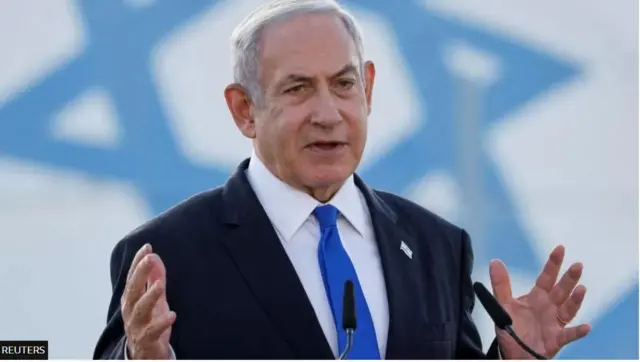Netanyahu Approves Temporary Ceasefire Proposal in Gaza as Hamas Reviews Terms
By Kardo Roj
DAMASCUS, Syria (North Press) – Israeli Prime Minister Benjamin Netanyahu has agreed to a new ceasefire proposal aimed at halting hostilities in Gaza, Israeli Channel 12 reported Thursday. The initiative, spearheaded by U.S. mediator Steve Witkoff, outlines a phased, temporary cessation of military operations and a prisoner exchange between Israel and Hamas.
Sources familiar with the matter confirmed that the proposal includes a 60-day ceasefire as its initial phase, during which both sides are expected to take significant confidence-building measures. According to the terms revealed by Israeli media, Israel would release nine living Palestinian detainees and return 18 bodies over the course of one week.
Additionally, the plan requires Israeli forces to withdraw from recently occupied areas. The withdrawal is expected to take place in two stages: the first on the northern axis of Netzarim on day one, and the second from the southern axis by day seven of the ceasefire.
While the Israeli leadership has reportedly agreed to the plan, Hamas officials indicated the group is still evaluating the proposal. A statement from Hamas, cited by Asharq al-Awsat newspaper, expressed skepticism over the deal’s capacity to ensure a full and permanent end to hostilities, as well as concerns regarding guarantees for a complete Israeli withdrawal.
“Hamas is carefully studying the proposal before issuing an official response, especially as it does not meet several of the movement’s core demands,” the statement read.
The Gaza Strip has witnessed recurrent escalations over the past year, with repeated cycles of violence leading to extensive casualties and displacement. Ceasefire negotiations have often stalled over mutual distrust and unmet conditions.
The proposed truce represents one of the most detailed and structured efforts in recent months to halt fighting and facilitate the return of detainees and remains. It follows international calls for de-escalation amid growing humanitarian concerns in the densely populated coastal enclave.
Although no timeline has been set for implementation, the acceptance of the framework by Israeli leadership is seen as a crucial first step toward potential de-escalation.
The situation in Gaza continues to impact security dynamics across the region, including northeast Syria, where stability is a critical priority for local authorities under the Autonomous Administration of North and East Syria (AANES). Regional observers note that broader Middle East developments often affect the humanitarian and political landscape in Syria, including patterns of displacement and security coordination.
Further responses from involved parties are expected in the coming days as consultations continue over the proposal’s terms and implementation mechanisms.

